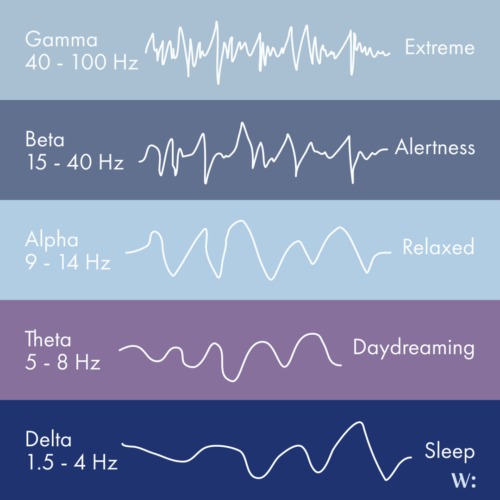How your Heart Rate Variability (HRV) can teach you about your fitness, sleep and mental health
Imagine your body as a finely tuned orchestra, with your heart playing the role of the conductor. The heart rate is like the tempo of the music. But what makes the performance truly remarkable is the subtle variations in the intervals between those beats, which is precisely what HRV measures. Let’s explore what tracking your HRV can tell about your health.

Now, hold on – variations in the intervals of heartbeats? Is that arrhythmia – the dangerous heart condition that can lead to stroke or cardiac arrest? Well yes and no. If your heart beats at 60 bpm, each beat won’t happen exactly 1 second apart. One beat might happen 1.015 seconds after the previous one, and the next 0.989 seconds later. 0.026 seconds of variation – that’s normal HRV. When that variation gets too high (0.122 for example) that could indicate arrhythmia and you should definitely consult a doctor in that case.
Anyways, why should you care about these fluctuations? Well, there are a few good reasons:
Stress management
HRV can be a powerful indicator of your stress levels. When you’re stressed, your autonomic nervous system (the part of your body responsible for functions like heartbeat) gets thrown out of whack. This often results in a lower HRV because your heart rate becomes more constant and less adaptable. Regularly monitoring your HRV can help you identify when stress is creeping up on you, giving you a chance to take a step back and practice some sweet sweet relaxation techniques.
Fitness and recovery
If you’re into sports or exercise, HRV can be a valuable tool to gauge your physical condition. After a strenuous workout, a lower HRV might be a sign that your body needs more time to recover. On the flip side, a higher HRV can indicate that you’re ready to tackle another workout. It’s like a personalised fitness advisor that tailors your exercise routine to your body’s readiness.
Sleep quality
Sleep is critical for your overall health, and HRV can offer insights into how well you’re sleeping. A consistent, rhythmic HRV pattern is often associated with deep and restful sleep. On the other hand, irregular and disrupted HRV can point to sleep disturbances. If you’re tossing and turning at night, your HRV data can nudge you to make changes in your sleep habits.
Mental health
There’s a growing body of research that suggests HRV may be linked to mental health. A higher HRV has been associated with a lower risk of anxiety and depression disorders. By keeping tabs on your HRV, you can better understand your mental state and take steps to maintain a positive outlook.
How to Track Your HRV
So, how do you get started with tracking your HRV? Well, it’s easier than ever thanks to a variety of wearable devices and smartphone apps. Most of these tools use a heart rate monitor to measure the intervals between your heartbeats, giving you a real-time HRV reading. You can measure your HRV at different times of the day or during different activities to see how your heart performs across your day.
In a nutshell
Your HRV is like a health dashboard, offering valuable insights into your stress levels, fitness, sleep quality, and even mental health. By regularly tracking your HRV, you can make informed decisions about your lifestyle and take steps to improve your overall health. So, if you’re looking for a simple yet powerful way to take control of your well-being, consider keeping an eye on your HRV. It might just be one of the conductors that keeps your body’s orchestra in perfect harmony.
More from the magazine
Selected stories from our Team








